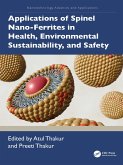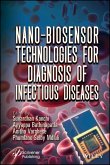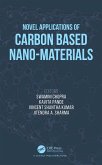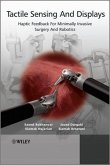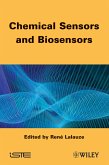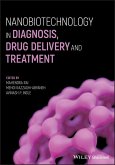Nano-Biosensor Technologies for Diagnosis of Infectious Diseases (eBook, ePUB)
Redaktion: Kanchi, Suvardhan; Mdluli, Phumlane Selby; Varghese, Anitha; Bathinapatla, Ayyappa
187,99 €
187,99 €
inkl. MwSt.
Sofort per Download lieferbar

0 °P sammeln
187,99 €
Als Download kaufen

187,99 €
inkl. MwSt.
Sofort per Download lieferbar

0 °P sammeln
Jetzt verschenken
Alle Infos zum eBook verschenken
187,99 €
inkl. MwSt.
Sofort per Download lieferbar
Alle Infos zum eBook verschenken

0 °P sammeln
Nano-Biosensor Technologies for Diagnosis of Infectious Diseases (eBook, ePUB)
Redaktion: Kanchi, Suvardhan; Mdluli, Phumlane Selby; Varghese, Anitha; Bathinapatla, Ayyappa
- Format: ePub
- Merkliste
- Auf die Merkliste
- Bewerten Bewerten
- Teilen
- Produkt teilen
- Produkterinnerung
- Produkterinnerung

Bitte loggen Sie sich zunächst in Ihr Kundenkonto ein oder registrieren Sie sich bei
bücher.de, um das eBook-Abo tolino select nutzen zu können.
Hier können Sie sich einloggen
Hier können Sie sich einloggen
Sie sind bereits eingeloggt. Klicken Sie auf 2. tolino select Abo, um fortzufahren.

Bitte loggen Sie sich zunächst in Ihr Kundenkonto ein oder registrieren Sie sich bei bücher.de, um das eBook-Abo tolino select nutzen zu können.
The book offers a thorough exploration of revolutionary nano-biosensor technologies that enables rapid, accurate detection of infectious diseases, critical for effective disease management in today's world.
Nano-Biosensor Technologies for Diagnosis of Infectious Diseases delves into the cutting-edge developments in nano-biosensor technology, a transformative innovation for the field of medical diagnostics. Nano-biosensors integrate nanomaterials like nanoparticles, nanowires, and nanotubes with biological recognition elements such as antibodies, nucleic acids, or enzymes to create highly…mehr
- Geräte: eReader
- mit Kopierschutz
- eBook Hilfe
- Größe: 13.28MB
Andere Kunden interessierten sich auch für
![Applications of Spinel Nano-Ferrites in Health, Environmental Sustainability, and Safety (eBook, ePUB) Applications of Spinel Nano-Ferrites in Health, Environmental Sustainability, and Safety (eBook, ePUB)]() Applications of Spinel Nano-Ferrites in Health, Environmental Sustainability, and Safety (eBook, ePUB)49,95 €
Applications of Spinel Nano-Ferrites in Health, Environmental Sustainability, and Safety (eBook, ePUB)49,95 €![Nano-Biosensor Technologies for Diagnosis of Infectious Diseases (eBook, PDF) Nano-Biosensor Technologies for Diagnosis of Infectious Diseases (eBook, PDF)]() Nano-Biosensor Technologies for Diagnosis of Infectious Diseases (eBook, PDF)187,99 €
Nano-Biosensor Technologies for Diagnosis of Infectious Diseases (eBook, PDF)187,99 €![Novel Applications of Carbon Based Nano-materials (eBook, ePUB) Novel Applications of Carbon Based Nano-materials (eBook, ePUB)]() Novel Applications of Carbon Based Nano-materials (eBook, ePUB)63,95 €
Novel Applications of Carbon Based Nano-materials (eBook, ePUB)63,95 €![Tactile Sensing and Displays (eBook, ePUB) Tactile Sensing and Displays (eBook, ePUB)]() Javad DargahiTactile Sensing and Displays (eBook, ePUB)98,99 €
Javad DargahiTactile Sensing and Displays (eBook, ePUB)98,99 €![Chemical Sensors and Biosensors (eBook, ePUB) Chemical Sensors and Biosensors (eBook, ePUB)]() Chemical Sensors and Biosensors (eBook, ePUB)160,99 €
Chemical Sensors and Biosensors (eBook, ePUB)160,99 €![Micro- and Nanoscale Technologies in Drug Delivery (eBook, ePUB) Micro- and Nanoscale Technologies in Drug Delivery (eBook, ePUB)]() Micro- and Nanoscale Technologies in Drug Delivery (eBook, ePUB)148,95 €
Micro- and Nanoscale Technologies in Drug Delivery (eBook, ePUB)148,95 €![Nanobiotechnology in Diagnosis, Drug Delivery and Treatment (eBook, ePUB) Nanobiotechnology in Diagnosis, Drug Delivery and Treatment (eBook, ePUB)]() Nanobiotechnology in Diagnosis, Drug Delivery and Treatment (eBook, ePUB)139,99 €
Nanobiotechnology in Diagnosis, Drug Delivery and Treatment (eBook, ePUB)139,99 €-
-
-
The book offers a thorough exploration of revolutionary nano-biosensor technologies that enables rapid, accurate detection of infectious diseases, critical for effective disease management in today's world.
Nano-Biosensor Technologies for Diagnosis of Infectious Diseases delves into the cutting-edge developments in nano-biosensor technology, a transformative innovation for the field of medical diagnostics. Nano-biosensors integrate nanomaterials like nanoparticles, nanowires, and nanotubes with biological recognition elements such as antibodies, nucleic acids, or enzymes to create highly sensitive and specific detection systems. These sensors exploit unique properties of nanomaterials to detect minute quantities of pathogens or biomarkers with remarkable accuracy, enabling early diagnosis and monitoring of infectious diseases. The integration of electrochemical, optical, and piezoelectric detection mechanisms further enhances the versatility and efficiency of these nano-biosensors, allowing for rapid, real-time analysis that is crucial for effective disease management.
In the context of infectious diseases, nano-biosensors become particularly significant, as they can facilitate point-of-care testing (POCT), offering rapid and portable diagnostic solutions. This capability is invaluable in resource-limited settings and during outbreaks where traditional laboratory infrastructure may be lacking. The COVID-19 pandemic underscores the importance of swift and accurate diagnostic tools, spurring accelerated innovation and commercialization efforts in this domain. Nano-biosensors are now being developed and deployed to detect a wide range of pathogens with high sensitivity, providing a powerful tool in the global fight against infectious diseases. Nano-Biosensor Technologies for Diagnosis of Infectious Diseases provides a comprehensive overview of these technological advancements, exploring their applications, challenges, and future directions in the diagnosis and management of infectious diseases.
Audience
Biomedical engineers, material chemists, researchers, students, policymakers, and healthcare professionals interested in integrating nanomaterials in infectious disease care
Nano-Biosensor Technologies for Diagnosis of Infectious Diseases delves into the cutting-edge developments in nano-biosensor technology, a transformative innovation for the field of medical diagnostics. Nano-biosensors integrate nanomaterials like nanoparticles, nanowires, and nanotubes with biological recognition elements such as antibodies, nucleic acids, or enzymes to create highly sensitive and specific detection systems. These sensors exploit unique properties of nanomaterials to detect minute quantities of pathogens or biomarkers with remarkable accuracy, enabling early diagnosis and monitoring of infectious diseases. The integration of electrochemical, optical, and piezoelectric detection mechanisms further enhances the versatility and efficiency of these nano-biosensors, allowing for rapid, real-time analysis that is crucial for effective disease management.
In the context of infectious diseases, nano-biosensors become particularly significant, as they can facilitate point-of-care testing (POCT), offering rapid and portable diagnostic solutions. This capability is invaluable in resource-limited settings and during outbreaks where traditional laboratory infrastructure may be lacking. The COVID-19 pandemic underscores the importance of swift and accurate diagnostic tools, spurring accelerated innovation and commercialization efforts in this domain. Nano-biosensors are now being developed and deployed to detect a wide range of pathogens with high sensitivity, providing a powerful tool in the global fight against infectious diseases. Nano-Biosensor Technologies for Diagnosis of Infectious Diseases provides a comprehensive overview of these technological advancements, exploring their applications, challenges, and future directions in the diagnosis and management of infectious diseases.
Audience
Biomedical engineers, material chemists, researchers, students, policymakers, and healthcare professionals interested in integrating nanomaterials in infectious disease care
Dieser Download kann aus rechtlichen Gründen nur mit Rechnungsadresse in D ausgeliefert werden.
Produktdetails
- Produktdetails
- Verlag: John Wiley & Sons
- Seitenzahl: 735
- Erscheinungstermin: 7. Mai 2025
- Englisch
- ISBN-13: 9781394287673
- Artikelnr.: 74160920
- Verlag: John Wiley & Sons
- Seitenzahl: 735
- Erscheinungstermin: 7. Mai 2025
- Englisch
- ISBN-13: 9781394287673
- Artikelnr.: 74160920
- Herstellerkennzeichnung Die Herstellerinformationen sind derzeit nicht verfügbar.
Suvardhan Kanchi, Ph.D., is an associate professor of the Department of Chemistry, Sambhram Institute of Technology, Bengaluru, India. He is also a senior researcher in novel method development and validation. He has a Ph.D. in analytical chemistry. His expertise is in field-flow fractionation techniques. He has conducted studies in the scientific literature, gathered and analyzed data, and improved decision-making processes. In his research, Kanchi has developed new nanomaterials and devices that detect temperature. Ayyappa Bathinapatla, M.D, Ph.D., is an assistant professor in the Department of Chemistry, CMR Institute of Technology, Bengaluru, India. He obtained a Ph.D. from Durban University of Technology, South Africa, in 2012. Bathinapatia is fond of researching the determination of organic and inorganic compounds using capillary electrophoresis. In addition, he also researches applications of nanomaterials in the field of energy production. He has 13 research publications in various international journals and filed patents. Anitha Varghese, Ph.D., is a professor and head of the Department of Chemistry, CHRIST (Deemed to be University), Bengaluru, India. She received a Ph.D. in chemistry from Mangalore University, Karnataka, India in 2007. She has published 96 academic papers and earned six patents. Varghese has won several awards, such as the Woman of the Year award in 2020 from CHRIST (Deemed to be University), Bangalore, India. Phumlane Mdluli, Ph.D., is the head of the health platform in the advanced material division at the Nanotechnology Innovation Centre, Mintek, Randburg, South Africa. He obtained a Ph.D. from the University of Zululand, South Africa, in 2009. He has published 73 academic papers. Mdluli was awarded the Mintek Apex Award for developing rapid diagnostic lateral flow assays and won the Best Researcher Award in the Faculty and Department of Chemistry at the Durban University of Technology.
Preface xv
1 Biosensor Technology: Basic Principles, Fundamentals, and History 1
Mariyam Thomas, Mathew George, Derry Holaday M. G. and P. J. Jandas
1.1 Introduction 2
References 20
2 Design and Synthesis of Novel Nanomaterials Emphasizing Infectious
Diseases 23
Prasann Kumar and Joginder Singh
2.1 Introduction 24
2.2 Antifungal Therapy 26
2.3 Cutting-Edge Advances in Tailoring the Size, Shape, and Functionality
of Nanoparticles and Nanostructures 28
2.4 Gold Silver Nanoparticle to Combat Multi-Drug Resistant Pathogen 30
2.5 Mechanism of Gold Silver Nanoparticle to Combat Multi-Drug Resistant
Pathogen 31
2.6 MXenes and Borophene Nanomaterials: Highly Efficient Sensor Activity
and Energy Storage Properties 34
2.7 Immunomodulatory Nanosystems 39
2.8 Lateral Flow Assays (LFAs) 40
2.9 Metal-Organic Framework (MOF) 43
2.10 Microfluidic Devices: For Detecting Disease-Specific Proteins 45
2.11 Comprehensive Overview of Nanomaterials in the Context of Cutaneous
Leishmaniasis 47
2.12 Graphene Oxide (GO): A Two-Dimensional (2D) Nanomaterial 55
Conclusion 65
Future Prospect 66
Acknowledgement 67
Authors' Contributions 68
References 68
3 Role of Nanomaterials in the Development of Nanobiosensors for Infectious
Diseases 75
Ayyappa Bathinapatla, Ravikumar Mulpuri, Aseena Azeez and Suvardhan Kanchi
3.1 Introduction 76
3.2 Designing Biosensor for SARS-CoV-2 83
3.3 Conclusions and Future Perspectives 112
References 113
4 Nanobiosensors: Versatile Tool for Diagnosis of Infectious Diseases 121
Prasann Kumar and Joginder Singh
4.1 Introduction 122
4.2 Nanobiosensors as Promising Devices for the Diagnosis of Coronavirus
Family Members 123
4.3 Nanobiosensors for Plant Analysis 129
4.4 Three-Way Junctions Skeleton of Biosensor 135
4.5 The SpACE-CCM: Biosensor for Detection of SARS-CoV-2 Spike-ACE2
Interaction 142
4.6 Wearable Biosensor Nano and Microsystems Have Emerged as Innovative
Solutions for Medical Diagnostics 146
4.7 Biosensors are Analytical Devices 153
4.8 Conclusion 159
Acknowledgement 160
Authors' Contributions 160
References 160
5 Trends in the Development of Immunosensors for the Diagnosis of
Infectious Diseases 173
Stephen Rathinaraj Benjamin, Eli José Miranda Ribeiro Júnior, Sam Phinehas
Gnana Sekar, Rosa Fireman Dutra and Geanne Matos de Andrade
5.1 Introduction 174
5.2 Immunosensors 178
5.3 Optical Immunosensor 180
5.4 Nanomaterials Immunosensor 183
5.5 Paper-Based Immunosensors 185
5.6 Viral Infectious Diseases 185
5.7 Future Perspectives and Conclusion 190
Acknowledgements 191
References 191
6 Electrochemical Nanobiosensors Approaches for Rapid Diagnosis of
Infectious Diseases 197
Tahmina Foyez and Abu Bin Imran
6.1 Introduction 198
6.2 Conventional Methods for the Determination of Infectious Pathogens 199
6.3 Building Blocks of Biosensor 202
6.4 Electrochemical-Based Biosensors 206
6.5 Impact of Nanomaterials on Biosensor Performance 209
6.6 Noble Metal Nanomaterials 210
6.7 Metal Oxide Nanomaterials 214
6.8 Carbon Nanomaterials 216
6.9 Polymer Nanomaterials 218
6.10 Bionanomaterials 220
6.11 Conclusions and Future Perspectives 222
Acknowledgement 223
References 223
7 Enzymatic Nanobiosensor Strategies to Contain the Spread of Infectious
Diseases 231
Soumendu Patra, Harshita Shand, Swarnab Dutta, Rittick Mondal and Suvankar
Ghorai
7.1 Introduction 232
7.2 Components of Enzymatic Biosensor 233
7.3 Enzymatic Nanobiosensors for Pathogen Detection 234
7.4 Nanozymes 235
7.5 Future Aspects 237
References 238
8 Development of Optical Nanosensors for the Detection of Infectious
Diseases 241
Ndivhuwo Shumbula, Nosipho Moloto, Phumlane Mdluli and Mbuso Mlambo
8.1 Introduction 242
8.2 Overview of Biosensor 243
8.3 Introduction to Optical Nanosensors 246
8.4 Remarks 262
References 265
9 Aptasensors: Selective and Powerful Tools for Infectious Diseases
Diagnosis 279
Seele, P. P., Van der Walt, H., Sibuyi, N.R.S. and Maserumule, M.C.
9.1 Introduction 280
9.2 Aptamers as Selective and Powerful Tools for Diagnostics 281
9.3 Synthesis of Aptamers 288
9.4 Application of Aptasensors in PoC Diagnostics 293
9.5 Aptasensors Impact on Infectious Disease Diagnosis 296
9.6 Drawbacks and Potential Future Work 302
9.7 Conclusions 303
References 303
10 Nanobiosensors: A Platform for the Diagnosis of Microbial Pathogens 315
Ranjita Misra and Naomi Sanjana Sharath
10.1 Introduction 316
10.2 Microbial Pathogens 317
10.3 Diseases Caused by Pathogens 319
10.4 Importance of Pathogen Detection or Disease Diagnosis 320
10.5 Biosensors 322
10.6 Nanobiosensors as Diagnostic Platform 323
10.7 Stabilization of Biomolecules with Nanoparticles 325
10.8 Types of Nanoparticles Used in Biosensor Development 328
10.9 Challenges and Future Prospects 332
Conclusion 333
References 334
11 Micro/Nanofluidics-Integrated Biosensors for Respiratory Viral Diseases
Diagnosis 341
Aiswarya Chandrasekaran and G.H.R. Eranga Karunaratne
11.1 Introduction 342
11.2 Common Respiratory Viruses and Their Detection Components 343
11.3 Biosensors 345
11.4 Fluidic Technology 347
11.5 Applications of Micro/Nanofluidic-Based Biosensors in Respiratory
Virus Detection 352
11.6 Advantages of Micro/Nanofluidic Diagnosis Tools Over the Other
Diagnostic Methods 356
11.7 Conclusion and Future Perspectives 356
References 357
12 Nanobiosensor System: A Robust Analytical Tool for Pandemics 365
Mohammad Harun-Ur-Rashid, Israt Jahan and Abu Bin Imran
12.1 Introduction 366
12.2 Nanobiosensors for Global Pandemics 369
12.3 Nanobiosensors for COVID-19 375
12.4 Nanobiosensors for Influenza 378
12.5 Nanobiosensors for MERS 381
12.6 Nanobiosensors for HIV/AIDS 383
12.7 Nanobiosensors for Other Human Viruses 385
12.8 Selection and Optimization of Nanomaterials for Nanobiosensors 387
12.9 Current Challenges and Prospective Solutions 391
12.10 Conclusion 392
References 393
13 Biosensing Technologies to Improve Neurological Disease Management 401
Poojith Nuthalapati, Arjun Singh, Brinda Niravkumar Desai, Preeti Reddy
Yendapalli, Reethika Gongireddy, Karan Singh, Bhaswanth Bollu and Dheeraj
K. Pinninty
13.1 Introduction 402
13.2 Trends, Challenges, and the Disease Burden 404
13.3 CNS Diseases 404
13.4 Utility of Neurobiosensors 405
13.5 The Technology Behind Biosensor Development 406
13.6 Clinical Applications 413
13.7 Conclusion 415
References 416
14 Nanotechnology-Based Strategies for Improvement of Disease Diagnostic
Systems for Future Outbreaks 423
Busiswa Dyan, Tintswalo N. Mgwenya, Kamogelo S. Setlolamathe, Phumlane S.
Mdluli and Nicole R.S. Sibuyi
14.1 Introduction 424
14.2 Infectious Disease Outbreaks 424
14.3 Pandemic-Potential Priority Diseases for Future Outbreaks 432
14.4 Combating Infectious Diseases Through Diagnostics 434
14.5 Nanotechnology in Diagnostics 438
14.6 Conclusion 440
References 441
15 Biocompatibility and Toxicity of Nanomaterials in the Designing of Tools
for the Diagnosis of Infectious Diseases 449
Manju Manuel
15.1 Introduction 450
15.2 An Overview of Nanomaterials in Infectious Disease Diagnosis 451
15.3 Biocompatibility Assessment 453
15.4 Mechanism of Nanoparticles in the Infectious Disease Diagnosis 455
15.5 In Vitro and In Vivo Evaluation Methods of Biocompatibility Analysis
458
15.6 Toxicity of Nanomaterials 458
15.7 The Environmental and Health Hazards Caused by Nanoparticles 461
15.8 The Tools Developed for the Diagnosis of Infectious Diseases 462
15.9 Conclusion 464
References 464
16 Strengthening the Health System of the Communities in the Battle Against
Infectious Diseases 469
Dinoy Mathew, Anu P. Mathew, Bobby Simon and Ancy Joseph
16.1 Introduction 470
16.2 Primary Healthcare 471
16.3 Impact of COVID-19 on Infectious Diseases and Health Systems 476
16.4 Conclusion 480
References 480
Index 485
1 Biosensor Technology: Basic Principles, Fundamentals, and History 1
Mariyam Thomas, Mathew George, Derry Holaday M. G. and P. J. Jandas
1.1 Introduction 2
References 20
2 Design and Synthesis of Novel Nanomaterials Emphasizing Infectious
Diseases 23
Prasann Kumar and Joginder Singh
2.1 Introduction 24
2.2 Antifungal Therapy 26
2.3 Cutting-Edge Advances in Tailoring the Size, Shape, and Functionality
of Nanoparticles and Nanostructures 28
2.4 Gold Silver Nanoparticle to Combat Multi-Drug Resistant Pathogen 30
2.5 Mechanism of Gold Silver Nanoparticle to Combat Multi-Drug Resistant
Pathogen 31
2.6 MXenes and Borophene Nanomaterials: Highly Efficient Sensor Activity
and Energy Storage Properties 34
2.7 Immunomodulatory Nanosystems 39
2.8 Lateral Flow Assays (LFAs) 40
2.9 Metal-Organic Framework (MOF) 43
2.10 Microfluidic Devices: For Detecting Disease-Specific Proteins 45
2.11 Comprehensive Overview of Nanomaterials in the Context of Cutaneous
Leishmaniasis 47
2.12 Graphene Oxide (GO): A Two-Dimensional (2D) Nanomaterial 55
Conclusion 65
Future Prospect 66
Acknowledgement 67
Authors' Contributions 68
References 68
3 Role of Nanomaterials in the Development of Nanobiosensors for Infectious
Diseases 75
Ayyappa Bathinapatla, Ravikumar Mulpuri, Aseena Azeez and Suvardhan Kanchi
3.1 Introduction 76
3.2 Designing Biosensor for SARS-CoV-2 83
3.3 Conclusions and Future Perspectives 112
References 113
4 Nanobiosensors: Versatile Tool for Diagnosis of Infectious Diseases 121
Prasann Kumar and Joginder Singh
4.1 Introduction 122
4.2 Nanobiosensors as Promising Devices for the Diagnosis of Coronavirus
Family Members 123
4.3 Nanobiosensors for Plant Analysis 129
4.4 Three-Way Junctions Skeleton of Biosensor 135
4.5 The SpACE-CCM: Biosensor for Detection of SARS-CoV-2 Spike-ACE2
Interaction 142
4.6 Wearable Biosensor Nano and Microsystems Have Emerged as Innovative
Solutions for Medical Diagnostics 146
4.7 Biosensors are Analytical Devices 153
4.8 Conclusion 159
Acknowledgement 160
Authors' Contributions 160
References 160
5 Trends in the Development of Immunosensors for the Diagnosis of
Infectious Diseases 173
Stephen Rathinaraj Benjamin, Eli José Miranda Ribeiro Júnior, Sam Phinehas
Gnana Sekar, Rosa Fireman Dutra and Geanne Matos de Andrade
5.1 Introduction 174
5.2 Immunosensors 178
5.3 Optical Immunosensor 180
5.4 Nanomaterials Immunosensor 183
5.5 Paper-Based Immunosensors 185
5.6 Viral Infectious Diseases 185
5.7 Future Perspectives and Conclusion 190
Acknowledgements 191
References 191
6 Electrochemical Nanobiosensors Approaches for Rapid Diagnosis of
Infectious Diseases 197
Tahmina Foyez and Abu Bin Imran
6.1 Introduction 198
6.2 Conventional Methods for the Determination of Infectious Pathogens 199
6.3 Building Blocks of Biosensor 202
6.4 Electrochemical-Based Biosensors 206
6.5 Impact of Nanomaterials on Biosensor Performance 209
6.6 Noble Metal Nanomaterials 210
6.7 Metal Oxide Nanomaterials 214
6.8 Carbon Nanomaterials 216
6.9 Polymer Nanomaterials 218
6.10 Bionanomaterials 220
6.11 Conclusions and Future Perspectives 222
Acknowledgement 223
References 223
7 Enzymatic Nanobiosensor Strategies to Contain the Spread of Infectious
Diseases 231
Soumendu Patra, Harshita Shand, Swarnab Dutta, Rittick Mondal and Suvankar
Ghorai
7.1 Introduction 232
7.2 Components of Enzymatic Biosensor 233
7.3 Enzymatic Nanobiosensors for Pathogen Detection 234
7.4 Nanozymes 235
7.5 Future Aspects 237
References 238
8 Development of Optical Nanosensors for the Detection of Infectious
Diseases 241
Ndivhuwo Shumbula, Nosipho Moloto, Phumlane Mdluli and Mbuso Mlambo
8.1 Introduction 242
8.2 Overview of Biosensor 243
8.3 Introduction to Optical Nanosensors 246
8.4 Remarks 262
References 265
9 Aptasensors: Selective and Powerful Tools for Infectious Diseases
Diagnosis 279
Seele, P. P., Van der Walt, H., Sibuyi, N.R.S. and Maserumule, M.C.
9.1 Introduction 280
9.2 Aptamers as Selective and Powerful Tools for Diagnostics 281
9.3 Synthesis of Aptamers 288
9.4 Application of Aptasensors in PoC Diagnostics 293
9.5 Aptasensors Impact on Infectious Disease Diagnosis 296
9.6 Drawbacks and Potential Future Work 302
9.7 Conclusions 303
References 303
10 Nanobiosensors: A Platform for the Diagnosis of Microbial Pathogens 315
Ranjita Misra and Naomi Sanjana Sharath
10.1 Introduction 316
10.2 Microbial Pathogens 317
10.3 Diseases Caused by Pathogens 319
10.4 Importance of Pathogen Detection or Disease Diagnosis 320
10.5 Biosensors 322
10.6 Nanobiosensors as Diagnostic Platform 323
10.7 Stabilization of Biomolecules with Nanoparticles 325
10.8 Types of Nanoparticles Used in Biosensor Development 328
10.9 Challenges and Future Prospects 332
Conclusion 333
References 334
11 Micro/Nanofluidics-Integrated Biosensors for Respiratory Viral Diseases
Diagnosis 341
Aiswarya Chandrasekaran and G.H.R. Eranga Karunaratne
11.1 Introduction 342
11.2 Common Respiratory Viruses and Their Detection Components 343
11.3 Biosensors 345
11.4 Fluidic Technology 347
11.5 Applications of Micro/Nanofluidic-Based Biosensors in Respiratory
Virus Detection 352
11.6 Advantages of Micro/Nanofluidic Diagnosis Tools Over the Other
Diagnostic Methods 356
11.7 Conclusion and Future Perspectives 356
References 357
12 Nanobiosensor System: A Robust Analytical Tool for Pandemics 365
Mohammad Harun-Ur-Rashid, Israt Jahan and Abu Bin Imran
12.1 Introduction 366
12.2 Nanobiosensors for Global Pandemics 369
12.3 Nanobiosensors for COVID-19 375
12.4 Nanobiosensors for Influenza 378
12.5 Nanobiosensors for MERS 381
12.6 Nanobiosensors for HIV/AIDS 383
12.7 Nanobiosensors for Other Human Viruses 385
12.8 Selection and Optimization of Nanomaterials for Nanobiosensors 387
12.9 Current Challenges and Prospective Solutions 391
12.10 Conclusion 392
References 393
13 Biosensing Technologies to Improve Neurological Disease Management 401
Poojith Nuthalapati, Arjun Singh, Brinda Niravkumar Desai, Preeti Reddy
Yendapalli, Reethika Gongireddy, Karan Singh, Bhaswanth Bollu and Dheeraj
K. Pinninty
13.1 Introduction 402
13.2 Trends, Challenges, and the Disease Burden 404
13.3 CNS Diseases 404
13.4 Utility of Neurobiosensors 405
13.5 The Technology Behind Biosensor Development 406
13.6 Clinical Applications 413
13.7 Conclusion 415
References 416
14 Nanotechnology-Based Strategies for Improvement of Disease Diagnostic
Systems for Future Outbreaks 423
Busiswa Dyan, Tintswalo N. Mgwenya, Kamogelo S. Setlolamathe, Phumlane S.
Mdluli and Nicole R.S. Sibuyi
14.1 Introduction 424
14.2 Infectious Disease Outbreaks 424
14.3 Pandemic-Potential Priority Diseases for Future Outbreaks 432
14.4 Combating Infectious Diseases Through Diagnostics 434
14.5 Nanotechnology in Diagnostics 438
14.6 Conclusion 440
References 441
15 Biocompatibility and Toxicity of Nanomaterials in the Designing of Tools
for the Diagnosis of Infectious Diseases 449
Manju Manuel
15.1 Introduction 450
15.2 An Overview of Nanomaterials in Infectious Disease Diagnosis 451
15.3 Biocompatibility Assessment 453
15.4 Mechanism of Nanoparticles in the Infectious Disease Diagnosis 455
15.5 In Vitro and In Vivo Evaluation Methods of Biocompatibility Analysis
458
15.6 Toxicity of Nanomaterials 458
15.7 The Environmental and Health Hazards Caused by Nanoparticles 461
15.8 The Tools Developed for the Diagnosis of Infectious Diseases 462
15.9 Conclusion 464
References 464
16 Strengthening the Health System of the Communities in the Battle Against
Infectious Diseases 469
Dinoy Mathew, Anu P. Mathew, Bobby Simon and Ancy Joseph
16.1 Introduction 470
16.2 Primary Healthcare 471
16.3 Impact of COVID-19 on Infectious Diseases and Health Systems 476
16.4 Conclusion 480
References 480
Index 485
Preface xv
1 Biosensor Technology: Basic Principles, Fundamentals, and History 1
Mariyam Thomas, Mathew George, Derry Holaday M. G. and P. J. Jandas
1.1 Introduction 2
References 20
2 Design and Synthesis of Novel Nanomaterials Emphasizing Infectious
Diseases 23
Prasann Kumar and Joginder Singh
2.1 Introduction 24
2.2 Antifungal Therapy 26
2.3 Cutting-Edge Advances in Tailoring the Size, Shape, and Functionality
of Nanoparticles and Nanostructures 28
2.4 Gold Silver Nanoparticle to Combat Multi-Drug Resistant Pathogen 30
2.5 Mechanism of Gold Silver Nanoparticle to Combat Multi-Drug Resistant
Pathogen 31
2.6 MXenes and Borophene Nanomaterials: Highly Efficient Sensor Activity
and Energy Storage Properties 34
2.7 Immunomodulatory Nanosystems 39
2.8 Lateral Flow Assays (LFAs) 40
2.9 Metal-Organic Framework (MOF) 43
2.10 Microfluidic Devices: For Detecting Disease-Specific Proteins 45
2.11 Comprehensive Overview of Nanomaterials in the Context of Cutaneous
Leishmaniasis 47
2.12 Graphene Oxide (GO): A Two-Dimensional (2D) Nanomaterial 55
Conclusion 65
Future Prospect 66
Acknowledgement 67
Authors' Contributions 68
References 68
3 Role of Nanomaterials in the Development of Nanobiosensors for Infectious
Diseases 75
Ayyappa Bathinapatla, Ravikumar Mulpuri, Aseena Azeez and Suvardhan Kanchi
3.1 Introduction 76
3.2 Designing Biosensor for SARS-CoV-2 83
3.3 Conclusions and Future Perspectives 112
References 113
4 Nanobiosensors: Versatile Tool for Diagnosis of Infectious Diseases 121
Prasann Kumar and Joginder Singh
4.1 Introduction 122
4.2 Nanobiosensors as Promising Devices for the Diagnosis of Coronavirus
Family Members 123
4.3 Nanobiosensors for Plant Analysis 129
4.4 Three-Way Junctions Skeleton of Biosensor 135
4.5 The SpACE-CCM: Biosensor for Detection of SARS-CoV-2 Spike-ACE2
Interaction 142
4.6 Wearable Biosensor Nano and Microsystems Have Emerged as Innovative
Solutions for Medical Diagnostics 146
4.7 Biosensors are Analytical Devices 153
4.8 Conclusion 159
Acknowledgement 160
Authors' Contributions 160
References 160
5 Trends in the Development of Immunosensors for the Diagnosis of
Infectious Diseases 173
Stephen Rathinaraj Benjamin, Eli José Miranda Ribeiro Júnior, Sam Phinehas
Gnana Sekar, Rosa Fireman Dutra and Geanne Matos de Andrade
5.1 Introduction 174
5.2 Immunosensors 178
5.3 Optical Immunosensor 180
5.4 Nanomaterials Immunosensor 183
5.5 Paper-Based Immunosensors 185
5.6 Viral Infectious Diseases 185
5.7 Future Perspectives and Conclusion 190
Acknowledgements 191
References 191
6 Electrochemical Nanobiosensors Approaches for Rapid Diagnosis of
Infectious Diseases 197
Tahmina Foyez and Abu Bin Imran
6.1 Introduction 198
6.2 Conventional Methods for the Determination of Infectious Pathogens 199
6.3 Building Blocks of Biosensor 202
6.4 Electrochemical-Based Biosensors 206
6.5 Impact of Nanomaterials on Biosensor Performance 209
6.6 Noble Metal Nanomaterials 210
6.7 Metal Oxide Nanomaterials 214
6.8 Carbon Nanomaterials 216
6.9 Polymer Nanomaterials 218
6.10 Bionanomaterials 220
6.11 Conclusions and Future Perspectives 222
Acknowledgement 223
References 223
7 Enzymatic Nanobiosensor Strategies to Contain the Spread of Infectious
Diseases 231
Soumendu Patra, Harshita Shand, Swarnab Dutta, Rittick Mondal and Suvankar
Ghorai
7.1 Introduction 232
7.2 Components of Enzymatic Biosensor 233
7.3 Enzymatic Nanobiosensors for Pathogen Detection 234
7.4 Nanozymes 235
7.5 Future Aspects 237
References 238
8 Development of Optical Nanosensors for the Detection of Infectious
Diseases 241
Ndivhuwo Shumbula, Nosipho Moloto, Phumlane Mdluli and Mbuso Mlambo
8.1 Introduction 242
8.2 Overview of Biosensor 243
8.3 Introduction to Optical Nanosensors 246
8.4 Remarks 262
References 265
9 Aptasensors: Selective and Powerful Tools for Infectious Diseases
Diagnosis 279
Seele, P. P., Van der Walt, H., Sibuyi, N.R.S. and Maserumule, M.C.
9.1 Introduction 280
9.2 Aptamers as Selective and Powerful Tools for Diagnostics 281
9.3 Synthesis of Aptamers 288
9.4 Application of Aptasensors in PoC Diagnostics 293
9.5 Aptasensors Impact on Infectious Disease Diagnosis 296
9.6 Drawbacks and Potential Future Work 302
9.7 Conclusions 303
References 303
10 Nanobiosensors: A Platform for the Diagnosis of Microbial Pathogens 315
Ranjita Misra and Naomi Sanjana Sharath
10.1 Introduction 316
10.2 Microbial Pathogens 317
10.3 Diseases Caused by Pathogens 319
10.4 Importance of Pathogen Detection or Disease Diagnosis 320
10.5 Biosensors 322
10.6 Nanobiosensors as Diagnostic Platform 323
10.7 Stabilization of Biomolecules with Nanoparticles 325
10.8 Types of Nanoparticles Used in Biosensor Development 328
10.9 Challenges and Future Prospects 332
Conclusion 333
References 334
11 Micro/Nanofluidics-Integrated Biosensors for Respiratory Viral Diseases
Diagnosis 341
Aiswarya Chandrasekaran and G.H.R. Eranga Karunaratne
11.1 Introduction 342
11.2 Common Respiratory Viruses and Their Detection Components 343
11.3 Biosensors 345
11.4 Fluidic Technology 347
11.5 Applications of Micro/Nanofluidic-Based Biosensors in Respiratory
Virus Detection 352
11.6 Advantages of Micro/Nanofluidic Diagnosis Tools Over the Other
Diagnostic Methods 356
11.7 Conclusion and Future Perspectives 356
References 357
12 Nanobiosensor System: A Robust Analytical Tool for Pandemics 365
Mohammad Harun-Ur-Rashid, Israt Jahan and Abu Bin Imran
12.1 Introduction 366
12.2 Nanobiosensors for Global Pandemics 369
12.3 Nanobiosensors for COVID-19 375
12.4 Nanobiosensors for Influenza 378
12.5 Nanobiosensors for MERS 381
12.6 Nanobiosensors for HIV/AIDS 383
12.7 Nanobiosensors for Other Human Viruses 385
12.8 Selection and Optimization of Nanomaterials for Nanobiosensors 387
12.9 Current Challenges and Prospective Solutions 391
12.10 Conclusion 392
References 393
13 Biosensing Technologies to Improve Neurological Disease Management 401
Poojith Nuthalapati, Arjun Singh, Brinda Niravkumar Desai, Preeti Reddy
Yendapalli, Reethika Gongireddy, Karan Singh, Bhaswanth Bollu and Dheeraj
K. Pinninty
13.1 Introduction 402
13.2 Trends, Challenges, and the Disease Burden 404
13.3 CNS Diseases 404
13.4 Utility of Neurobiosensors 405
13.5 The Technology Behind Biosensor Development 406
13.6 Clinical Applications 413
13.7 Conclusion 415
References 416
14 Nanotechnology-Based Strategies for Improvement of Disease Diagnostic
Systems for Future Outbreaks 423
Busiswa Dyan, Tintswalo N. Mgwenya, Kamogelo S. Setlolamathe, Phumlane S.
Mdluli and Nicole R.S. Sibuyi
14.1 Introduction 424
14.2 Infectious Disease Outbreaks 424
14.3 Pandemic-Potential Priority Diseases for Future Outbreaks 432
14.4 Combating Infectious Diseases Through Diagnostics 434
14.5 Nanotechnology in Diagnostics 438
14.6 Conclusion 440
References 441
15 Biocompatibility and Toxicity of Nanomaterials in the Designing of Tools
for the Diagnosis of Infectious Diseases 449
Manju Manuel
15.1 Introduction 450
15.2 An Overview of Nanomaterials in Infectious Disease Diagnosis 451
15.3 Biocompatibility Assessment 453
15.4 Mechanism of Nanoparticles in the Infectious Disease Diagnosis 455
15.5 In Vitro and In Vivo Evaluation Methods of Biocompatibility Analysis
458
15.6 Toxicity of Nanomaterials 458
15.7 The Environmental and Health Hazards Caused by Nanoparticles 461
15.8 The Tools Developed for the Diagnosis of Infectious Diseases 462
15.9 Conclusion 464
References 464
16 Strengthening the Health System of the Communities in the Battle Against
Infectious Diseases 469
Dinoy Mathew, Anu P. Mathew, Bobby Simon and Ancy Joseph
16.1 Introduction 470
16.2 Primary Healthcare 471
16.3 Impact of COVID-19 on Infectious Diseases and Health Systems 476
16.4 Conclusion 480
References 480
Index 485
1 Biosensor Technology: Basic Principles, Fundamentals, and History 1
Mariyam Thomas, Mathew George, Derry Holaday M. G. and P. J. Jandas
1.1 Introduction 2
References 20
2 Design and Synthesis of Novel Nanomaterials Emphasizing Infectious
Diseases 23
Prasann Kumar and Joginder Singh
2.1 Introduction 24
2.2 Antifungal Therapy 26
2.3 Cutting-Edge Advances in Tailoring the Size, Shape, and Functionality
of Nanoparticles and Nanostructures 28
2.4 Gold Silver Nanoparticle to Combat Multi-Drug Resistant Pathogen 30
2.5 Mechanism of Gold Silver Nanoparticle to Combat Multi-Drug Resistant
Pathogen 31
2.6 MXenes and Borophene Nanomaterials: Highly Efficient Sensor Activity
and Energy Storage Properties 34
2.7 Immunomodulatory Nanosystems 39
2.8 Lateral Flow Assays (LFAs) 40
2.9 Metal-Organic Framework (MOF) 43
2.10 Microfluidic Devices: For Detecting Disease-Specific Proteins 45
2.11 Comprehensive Overview of Nanomaterials in the Context of Cutaneous
Leishmaniasis 47
2.12 Graphene Oxide (GO): A Two-Dimensional (2D) Nanomaterial 55
Conclusion 65
Future Prospect 66
Acknowledgement 67
Authors' Contributions 68
References 68
3 Role of Nanomaterials in the Development of Nanobiosensors for Infectious
Diseases 75
Ayyappa Bathinapatla, Ravikumar Mulpuri, Aseena Azeez and Suvardhan Kanchi
3.1 Introduction 76
3.2 Designing Biosensor for SARS-CoV-2 83
3.3 Conclusions and Future Perspectives 112
References 113
4 Nanobiosensors: Versatile Tool for Diagnosis of Infectious Diseases 121
Prasann Kumar and Joginder Singh
4.1 Introduction 122
4.2 Nanobiosensors as Promising Devices for the Diagnosis of Coronavirus
Family Members 123
4.3 Nanobiosensors for Plant Analysis 129
4.4 Three-Way Junctions Skeleton of Biosensor 135
4.5 The SpACE-CCM: Biosensor for Detection of SARS-CoV-2 Spike-ACE2
Interaction 142
4.6 Wearable Biosensor Nano and Microsystems Have Emerged as Innovative
Solutions for Medical Diagnostics 146
4.7 Biosensors are Analytical Devices 153
4.8 Conclusion 159
Acknowledgement 160
Authors' Contributions 160
References 160
5 Trends in the Development of Immunosensors for the Diagnosis of
Infectious Diseases 173
Stephen Rathinaraj Benjamin, Eli José Miranda Ribeiro Júnior, Sam Phinehas
Gnana Sekar, Rosa Fireman Dutra and Geanne Matos de Andrade
5.1 Introduction 174
5.2 Immunosensors 178
5.3 Optical Immunosensor 180
5.4 Nanomaterials Immunosensor 183
5.5 Paper-Based Immunosensors 185
5.6 Viral Infectious Diseases 185
5.7 Future Perspectives and Conclusion 190
Acknowledgements 191
References 191
6 Electrochemical Nanobiosensors Approaches for Rapid Diagnosis of
Infectious Diseases 197
Tahmina Foyez and Abu Bin Imran
6.1 Introduction 198
6.2 Conventional Methods for the Determination of Infectious Pathogens 199
6.3 Building Blocks of Biosensor 202
6.4 Electrochemical-Based Biosensors 206
6.5 Impact of Nanomaterials on Biosensor Performance 209
6.6 Noble Metal Nanomaterials 210
6.7 Metal Oxide Nanomaterials 214
6.8 Carbon Nanomaterials 216
6.9 Polymer Nanomaterials 218
6.10 Bionanomaterials 220
6.11 Conclusions and Future Perspectives 222
Acknowledgement 223
References 223
7 Enzymatic Nanobiosensor Strategies to Contain the Spread of Infectious
Diseases 231
Soumendu Patra, Harshita Shand, Swarnab Dutta, Rittick Mondal and Suvankar
Ghorai
7.1 Introduction 232
7.2 Components of Enzymatic Biosensor 233
7.3 Enzymatic Nanobiosensors for Pathogen Detection 234
7.4 Nanozymes 235
7.5 Future Aspects 237
References 238
8 Development of Optical Nanosensors for the Detection of Infectious
Diseases 241
Ndivhuwo Shumbula, Nosipho Moloto, Phumlane Mdluli and Mbuso Mlambo
8.1 Introduction 242
8.2 Overview of Biosensor 243
8.3 Introduction to Optical Nanosensors 246
8.4 Remarks 262
References 265
9 Aptasensors: Selective and Powerful Tools for Infectious Diseases
Diagnosis 279
Seele, P. P., Van der Walt, H., Sibuyi, N.R.S. and Maserumule, M.C.
9.1 Introduction 280
9.2 Aptamers as Selective and Powerful Tools for Diagnostics 281
9.3 Synthesis of Aptamers 288
9.4 Application of Aptasensors in PoC Diagnostics 293
9.5 Aptasensors Impact on Infectious Disease Diagnosis 296
9.6 Drawbacks and Potential Future Work 302
9.7 Conclusions 303
References 303
10 Nanobiosensors: A Platform for the Diagnosis of Microbial Pathogens 315
Ranjita Misra and Naomi Sanjana Sharath
10.1 Introduction 316
10.2 Microbial Pathogens 317
10.3 Diseases Caused by Pathogens 319
10.4 Importance of Pathogen Detection or Disease Diagnosis 320
10.5 Biosensors 322
10.6 Nanobiosensors as Diagnostic Platform 323
10.7 Stabilization of Biomolecules with Nanoparticles 325
10.8 Types of Nanoparticles Used in Biosensor Development 328
10.9 Challenges and Future Prospects 332
Conclusion 333
References 334
11 Micro/Nanofluidics-Integrated Biosensors for Respiratory Viral Diseases
Diagnosis 341
Aiswarya Chandrasekaran and G.H.R. Eranga Karunaratne
11.1 Introduction 342
11.2 Common Respiratory Viruses and Their Detection Components 343
11.3 Biosensors 345
11.4 Fluidic Technology 347
11.5 Applications of Micro/Nanofluidic-Based Biosensors in Respiratory
Virus Detection 352
11.6 Advantages of Micro/Nanofluidic Diagnosis Tools Over the Other
Diagnostic Methods 356
11.7 Conclusion and Future Perspectives 356
References 357
12 Nanobiosensor System: A Robust Analytical Tool for Pandemics 365
Mohammad Harun-Ur-Rashid, Israt Jahan and Abu Bin Imran
12.1 Introduction 366
12.2 Nanobiosensors for Global Pandemics 369
12.3 Nanobiosensors for COVID-19 375
12.4 Nanobiosensors for Influenza 378
12.5 Nanobiosensors for MERS 381
12.6 Nanobiosensors for HIV/AIDS 383
12.7 Nanobiosensors for Other Human Viruses 385
12.8 Selection and Optimization of Nanomaterials for Nanobiosensors 387
12.9 Current Challenges and Prospective Solutions 391
12.10 Conclusion 392
References 393
13 Biosensing Technologies to Improve Neurological Disease Management 401
Poojith Nuthalapati, Arjun Singh, Brinda Niravkumar Desai, Preeti Reddy
Yendapalli, Reethika Gongireddy, Karan Singh, Bhaswanth Bollu and Dheeraj
K. Pinninty
13.1 Introduction 402
13.2 Trends, Challenges, and the Disease Burden 404
13.3 CNS Diseases 404
13.4 Utility of Neurobiosensors 405
13.5 The Technology Behind Biosensor Development 406
13.6 Clinical Applications 413
13.7 Conclusion 415
References 416
14 Nanotechnology-Based Strategies for Improvement of Disease Diagnostic
Systems for Future Outbreaks 423
Busiswa Dyan, Tintswalo N. Mgwenya, Kamogelo S. Setlolamathe, Phumlane S.
Mdluli and Nicole R.S. Sibuyi
14.1 Introduction 424
14.2 Infectious Disease Outbreaks 424
14.3 Pandemic-Potential Priority Diseases for Future Outbreaks 432
14.4 Combating Infectious Diseases Through Diagnostics 434
14.5 Nanotechnology in Diagnostics 438
14.6 Conclusion 440
References 441
15 Biocompatibility and Toxicity of Nanomaterials in the Designing of Tools
for the Diagnosis of Infectious Diseases 449
Manju Manuel
15.1 Introduction 450
15.2 An Overview of Nanomaterials in Infectious Disease Diagnosis 451
15.3 Biocompatibility Assessment 453
15.4 Mechanism of Nanoparticles in the Infectious Disease Diagnosis 455
15.5 In Vitro and In Vivo Evaluation Methods of Biocompatibility Analysis
458
15.6 Toxicity of Nanomaterials 458
15.7 The Environmental and Health Hazards Caused by Nanoparticles 461
15.8 The Tools Developed for the Diagnosis of Infectious Diseases 462
15.9 Conclusion 464
References 464
16 Strengthening the Health System of the Communities in the Battle Against
Infectious Diseases 469
Dinoy Mathew, Anu P. Mathew, Bobby Simon and Ancy Joseph
16.1 Introduction 470
16.2 Primary Healthcare 471
16.3 Impact of COVID-19 on Infectious Diseases and Health Systems 476
16.4 Conclusion 480
References 480
Index 485

